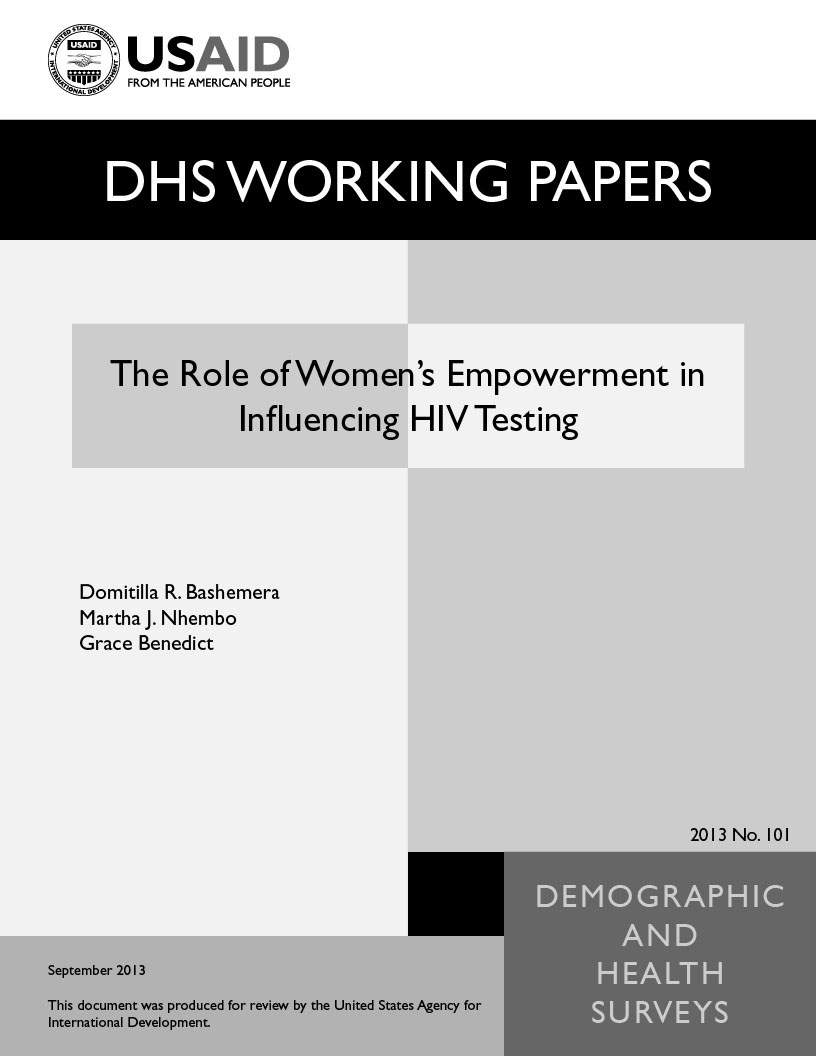- PUBLICATIONS
- JOURNAL ARTICLES
- ACCESS PUBLICATIONS
Publications Summary
- Document Type
- Working Papers
- Publication Topic(s)
- Gender, HIV/AIDS
- Country(s)
- Tanzania
- Language
- English
- Recommended Citation
- Bashemera, Domitilla R., Martha J. Nhembo, and Grace Benedict. 2013. The Role of Women's Empowerment in Influencing HIV Testing. DHS Working Papers No. 101. Calverton, Maryland, USA: ICF International.
- Download Citation
- RIS format / Text format / Endnote format
- Publication Date
- September 2013
- Publication ID
- WP101
Download
 The Role of Women's Empowerment in Influencing HIV Testing (PDF, 473K)
The Role of Women's Empowerment in Influencing HIV Testing (PDF, 473K)
